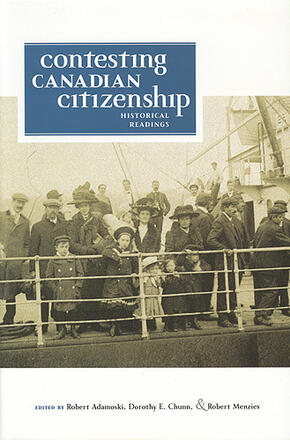
Contesting Canadian Citizenship
Historical Readings
La description
Over the past 15 years, the citizenship debate in political and social theory has undergone an extraordinary renaissance. To date, much of the writing on citizenship, within and beyond Canada, has been oriented toward the development of theory, or has concentrated on contemporary issues and examples. This collection of essays adopts a different approach by contextualizing and historicizing the citizenship debate, through studies of various aspects of the rise of social citizenship in Canada. Focusing on the formative years from the late 19th through mid-20th century, contributors examine how emerging discourse and practices in diverse areas of Canadian social life created a widely engaged, but often deeply contested, vision of the new Canadian citizen. The original essays examine key developments in the fields of welfare, justice, health, childhood, family, immigration, education, labour, media, popular culture and recreation, highlighting the contradictory nature of Canadian citizenship. The implications of these projects for the daily lives of Canadians, their identities, and the forms of resistance that they mounted, are central themes. Contributing authors situate their historical accounts in both public and private domains, their analyses emphasizing the mutual permeability of state and civil(ian) life. These diverse investigations reveal that while Canadian citizenship conveys crucial images of identity, security, and participatory democracy within the ongoing project of nation building, it is also interlaced with the projects of a hierarchical social structure and exclusionary political order. This collection explores the origins and evolution of Canadian citizenship in historical context. It also introduces the more general dilemmas and debates in social history and political theory that inevitably inform these inquiries.
Academics please note that this is a title classified as having a restricted allocation of complimentary copies. Restircted titles remain available to adopters and to academics very likely to adopt in the coming semester. When adoption possibilites are less strong or further in the future, academics are requested to purchase the title, with the provisio that UTP Higher Education will happily refund the purchase price if the book is indeed adopted. .